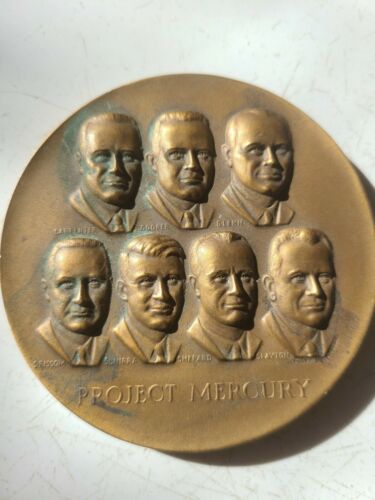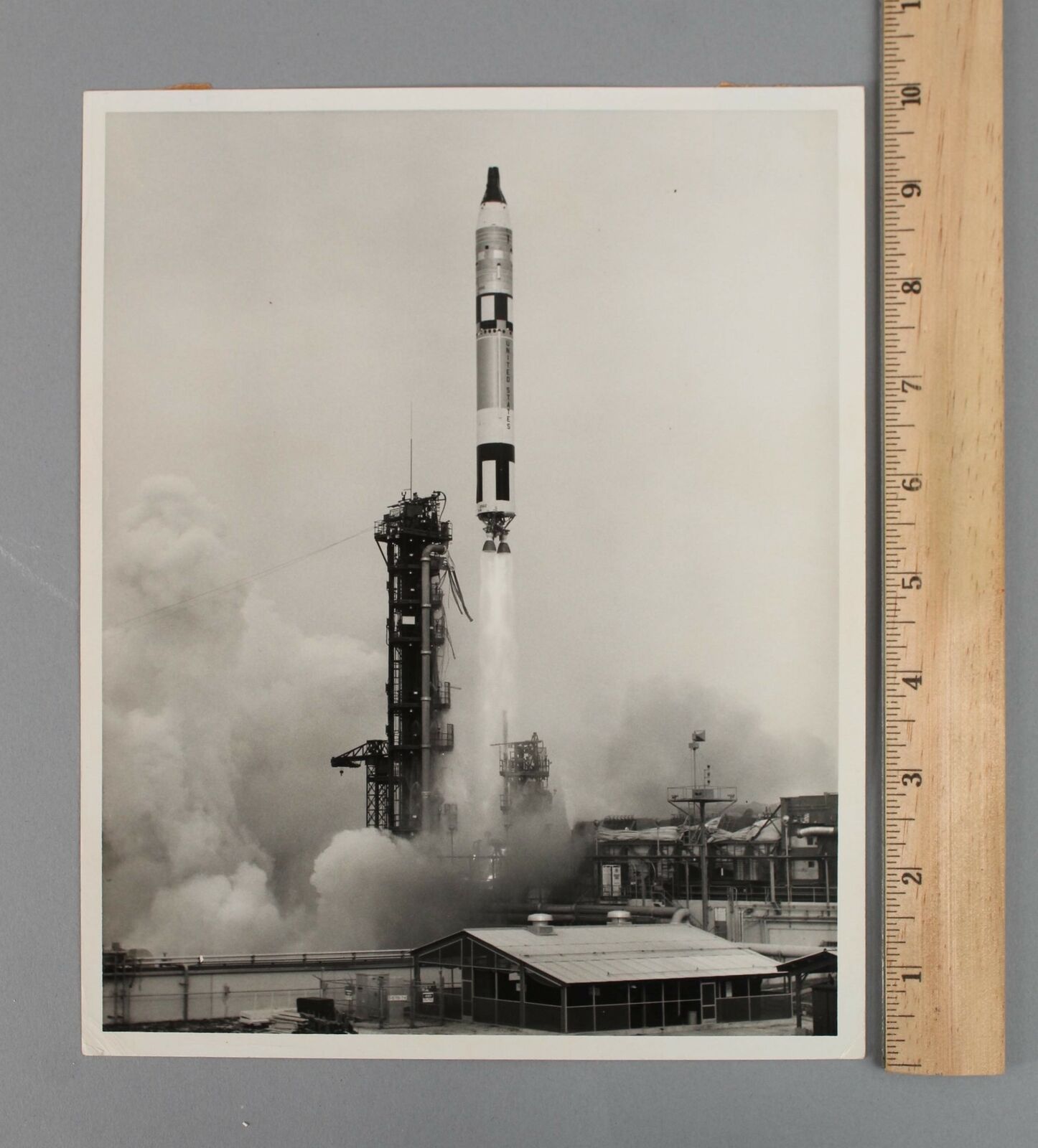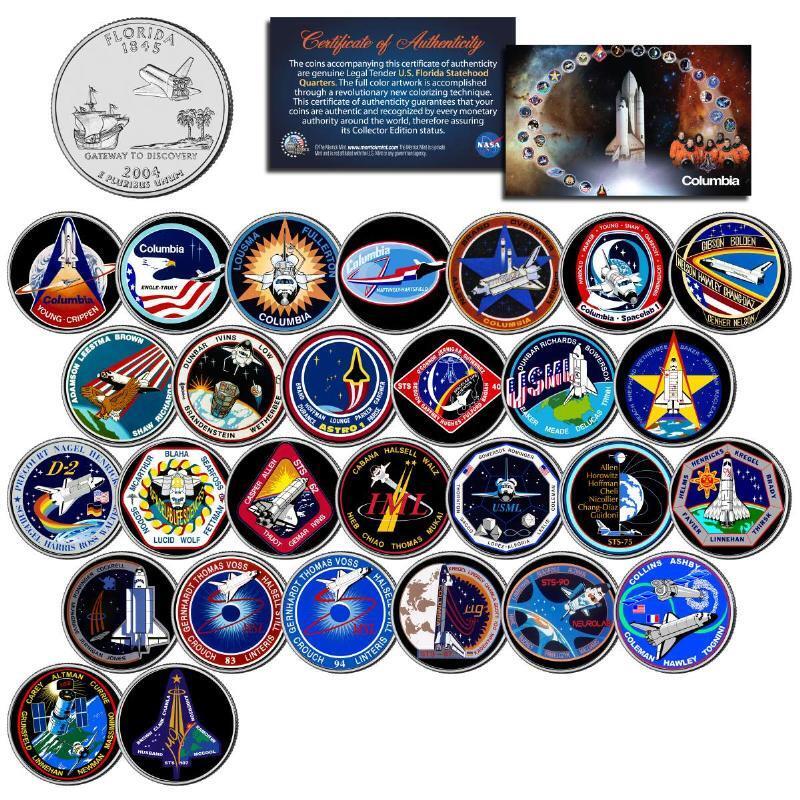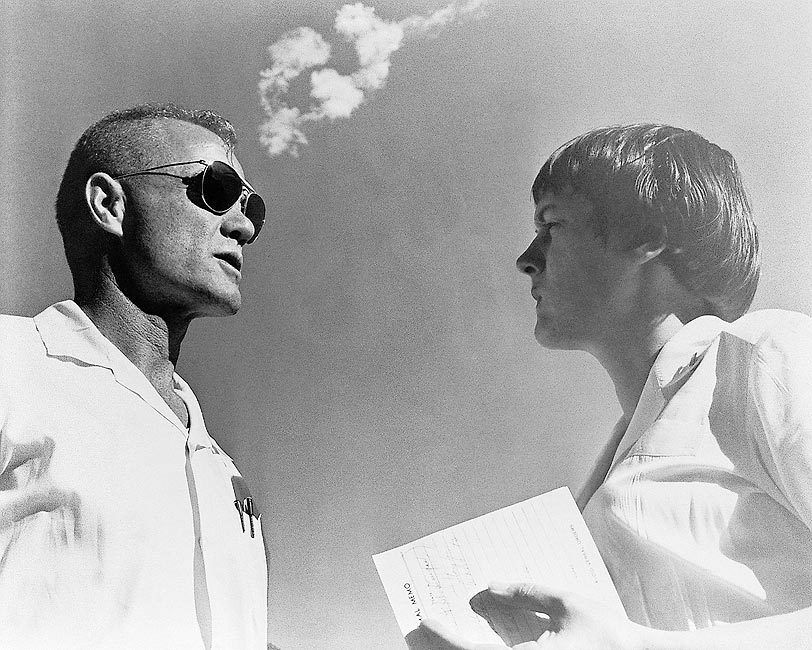-40%
PROJECT MERCURY Astronauts Mercury 7 Medal BRONZE ~Numista rarity index 97~
$ 422.37
- Description
- Size Guide
Description
PROJECT MERCURY Astronauts Mercury 7 Medal GOLD TONE BRONZE 1963. 3" diameter.Shipped with USPS First Class.
Medallic Art Co. of New York City produced the special medallions referred to here. Medallic is recognized as one of the nation's leading firms in producing bas-relief medallions from sculptors' original models. But only the faces of the original first seven astronauts was sculptured especially for the Project Mercury monument at the Cape's Pad 14 site by Ralph Menconi of New York City. A prize-winning artist, he was director of the Municipal Art Society of New York City and a member of the National Sculpture Society.
The overall medallion was conceived and designed by the General Dynamics Corp. in cooperation with NASA and the U.S. Air Force. About 200(+) of them were presented to congressional, government and industry leaders who performed extraordinary roles in the success of the initial U.S. man-in-space orbital program. Struck in limited quantity of gold, silver and bronze, the medallion(s) is a replica copy of the original, 2.5 feet in diameter, which is a major part of the Project Mercury monument itself. It was unveiled Nov. 10, 1964, at then-Cape Kennedy, FL, now the Cape Canaveral Air Force Station. The Mercury Sevenwere the group of seven astronauts selected to fly spacecraft for Project Mercury. They are also referred to as the Original Seven and Astronaut Group 1. Their names were publicly announced by NASA on April 9, 1959. These seven original American astronauts were Scott Carpenter, Gordon Cooper, John Glenn, Gus Grissom, Wally Schirra, Alan Shepard, and Deke Slayton. The Mercury Seven created a new profession in the United States, and established the image of the American astronaut for decades to come. All of the Mercury Seven eventually flew in space. They piloted the six space flights of the Mercury program that had an astronaut on board from May 1961 to May 1963, and members of the group flew on all of the NASA human space flight programs of the 20th century Mercury, Gemini, Apollo, and the Space Shuttle. Shepard became the first American to enter space in 1961, and later walked on the Moon on Apollo 14 in 1971. Grissom flew Mercury and Gemini missions, but died in 1967 in the Apollo 1 fire; the others all survived past retirement from service. Schirra flew Apollo 7, the first crewed Apollo mission, in Grissom's place. Slayton, grounded with anatrial fibrillation, ultimately flew on the Apollo Soyuz Test Project in 1975. Glenn became the first American in orbit in 1962, and flew on the Space Shuttle Discovery in 1998 to become, at age 77, the oldest person to fly in space. He was the last living member of the Mercury Seven when he died in 2016 at the age of 95.
Obverse~ Busts of Project Mercury Astronauts Lettering: CARPENTER COOPER GLENN GRISSOM SCHIRRA SHEPARD SLAYTON RALPH J MENCONI
Reverse~ Project Mercury insignia with rocket Lettering: COMMEMORATING FREE MAN'S FIRST ADVENTURE BEYOND THE ATMOSPHERE 1958-1963
Edge Lettering~MEDALLIC ART CO. N.Y. BRONZE Mint Medallic Art Company
Numista Rarity index:97




















